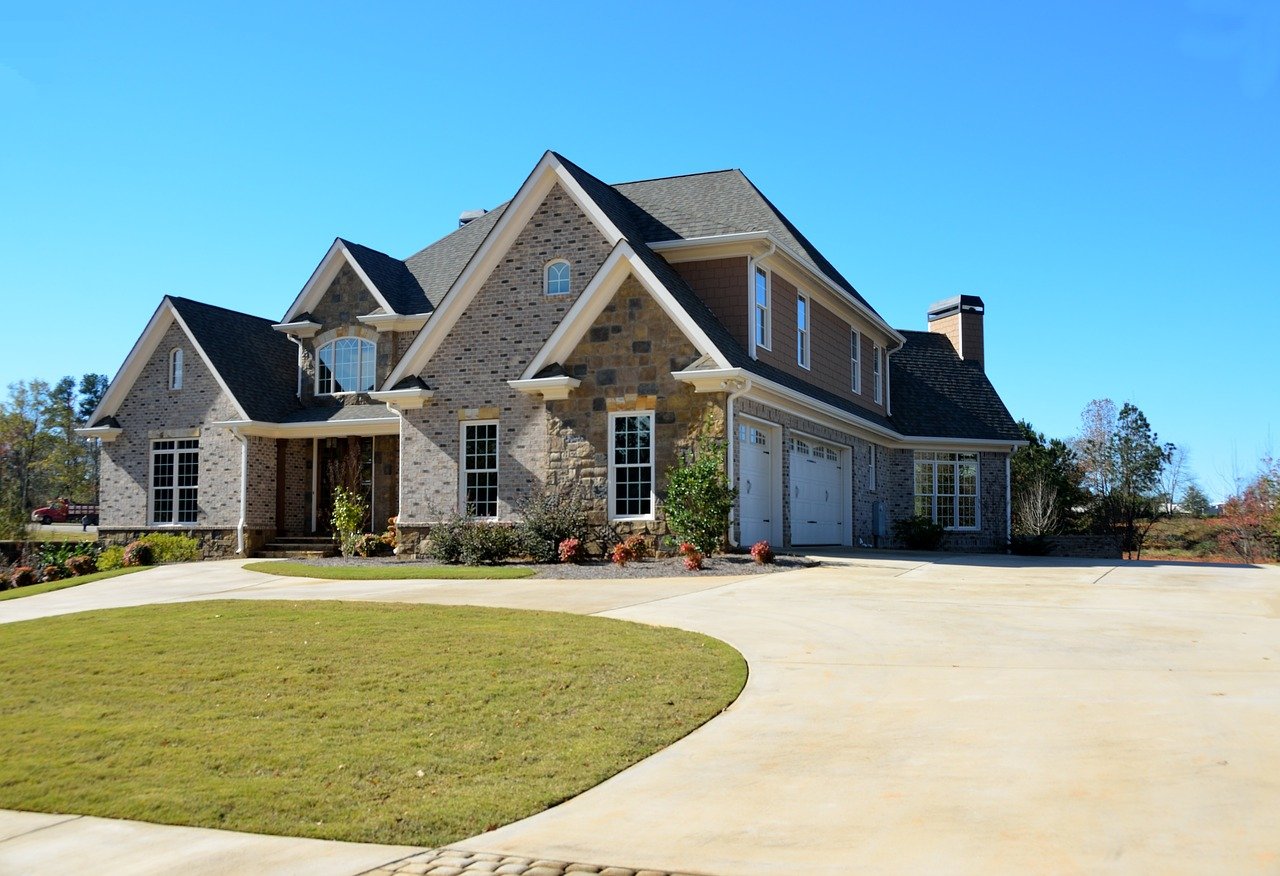Understanding Construction Loans: Tips for Homeowners

Embarking on a construction project to build your dream home is an exciting journey. However, it can also be a complex financial endeavor. One of the most crucial aspects of this process is securing the right financing, and construction loans play a pivotal role in making your vision a reality. Learn about cost-effective building trends at www.aachener-zeitung.de. Understanding how construction loans work and ways to navigate the application can save you time, money, and stress. Here are some essential tips for homeowners considering construction loans.
Understanding Construction Loans

A construction loan is like a soft loan used to finance the construction of a home or another real estate project. Unlike traditional mortgages, which disburse the full loan amount at once, construction loans provide funds in stages as the project progresses. These stages, or “draws,” correspond to specific phases of construction, such as foundation work, framing, and finishing. Construction loans typically cover the cost of land, labor, materials, and permits, with the loan term usually lasting between six months and two years.
Types of Construction Loans
There are varying types of construction loans, each catering to different needs and situations. The most common types include construction-to-permanent loans, stand-alone construction loans, and renovation construction loans. Construction-to-permanent loans initially fund the construction of the home and then convert it into a permanent mortgage once construction is complete. This type of loan offers the convenience of a single closing process and fixed interest rates. Stand-alone construction loans, on the other hand, cover only the construction phase.
Once the home is built, the borrower must safeguard a separate mortgage to pay off the construction loan. This type can be beneficial if you find a permanent loan with better terms later, but it involves two separate loan applications and closing processes. Renovation construction loans are specifically designed for homeowners looking to renovate or expand their existing homes. These loans fund extensive remodels and improvements, operating similarly to other construction loans, with funds disbursed in stages as the work progresses.
Qualification Requirements
A construction loan may need more severe qualifications than a standard mortgage. Lenders take your creditworthiness, income stability, and financial health seriously. A decent credit score is necessary, with most lenders demanding at least 620. However, higher scores increase your chances of acceptance and better conditions. Construction loans often need a larger down payment than standard mortgages, ranging between 20% and 30% of the entire project cost. This demonstrates your commitment and reduces the lender’s risk.
Lenders also require comprehensive construction plans, including blueprints, a timeline, and a detailed budget. These documents ensure that the project is well-planned and feasible. Your lender will also need to approve your chosen builder and review the builder’s credentials, experience, and financial stability to guarantee they can complete the project satisfactorily.
Interest Rates and Payments

Construction loans generally have variable interest rates that fluctuate with the prime rate or other market indices. During the building period, you normally pay interest only on the sums disbursed. Once the construction …





 When buying or investing in real estate, one crucial factor that can greatly influence your decision is the level of community safety. The safety of a neighborhood has a direct impact on the value and desirability of properties within it. Living in a safe community provides homeowners with peace of mind. They can feel secure knowing that their property and loved ones are protected. This sense of security increases residents’ overall quality of life, making them more likely to stay long-term and invest in maintaining their homes.
When buying or investing in real estate, one crucial factor that can greatly influence your decision is the level of community safety. The safety of a neighborhood has a direct impact on the value and desirability of properties within it. Living in a safe community provides homeowners with peace of mind. They can feel secure knowing that their property and loved ones are protected. This sense of security increases residents’ overall quality of life, making them more likely to stay long-term and invest in maintaining their homes.
 The most common type of housing that you will find in the real estate market is apartments. Apartments are usually found in urban areas and are perfect for people who do not want to have a lot of space or for people who cannot afford a house.
The most common type of housing that you will find in the real estate market is apartments. Apartments are usually found in urban areas and are perfect for people who do not want to have a lot of space or for people who cannot afford a house. Another common type of housing that you will find in the real estate market is condos. Condos are similar to apartments, but they usually have more than one bedroom, and they often come with a balcony. They are perfect for people who want more space than an apartment but do not want to live in a house.
Another common type of housing that you will find in the real estate market is condos. Condos are similar to apartments, but they usually have more than one bedroom, and they often come with a balcony. They are perfect for people who want more space than an apartment but do not want to live in a house. Lastly, single-family homes are the most common type of housing in the United States. They are perfect for families or for people who want a lot of space. Single-family homes usually have three or more bedrooms, and they often come with a garage and a backyard.
Lastly, single-family homes are the most common type of housing in the United States. They are perfect for families or for people who want a lot of space. Single-family homes usually have three or more bedrooms, and they often come with a garage and a backyard.
 Another thing that you’ll study is to discover an extraordinary location. The place of the house spells its authentic condition. On the flip side, the primary marketing value could be extended that you obtain. This is typical, considering you are simply investing in an advantage. As a result, you may develop your return so you might get a greater return of investment.
Another thing that you’ll study is to discover an extraordinary location. The place of the house spells its authentic condition. On the flip side, the primary marketing value could be extended that you obtain. This is typical, considering you are simply investing in an advantage. As a result, you may develop your return so you might get a greater return of investment.
 Additional information that you necessity do is to obtain an agent or broker. The majority of us yearn to accumulate money when purchasing ownership. However, we can spare moments and trouble if there is an agent. A realtor will associate everything that must be succeeded. He can manage the legal issues of these possessions if there is difficulty. He could also let you bargain for the amount if you’d like to acquire or market a house.
Additional information that you necessity do is to obtain an agent or broker. The majority of us yearn to accumulate money when purchasing ownership. However, we can spare moments and trouble if there is an agent. A realtor will associate everything that must be succeeded. He can manage the legal issues of these possessions if there is difficulty. He could also let you bargain for the amount if you’d like to acquire or market a house.

 As soon as your office furniture is in place, do not neglect to make reachable storage areas for things like filing documents, handbags, or and office gear. Many offices deliver pre-made cubicles with accessible built-in shelves. If your workplace or office has built-in shelves in height from your reach, ask that they be reduced.
As soon as your office furniture is in place, do not neglect to make reachable storage areas for things like filing documents, handbags, or and office gear. Many offices deliver pre-made cubicles with accessible built-in shelves. If your workplace or office has built-in shelves in height from your reach, ask that they be reduced.




 Property Managers operate on the Honor Code if they manage other people’s money. The manager holds a fiduciary relationship by collecting rent. The owner entrusts the estate’s value to the supervisor hired to maintain his or her highest degree of ethics. Daily, the real estate manager’s good judgment and awareness of what’s wrong and right is called to play.
Property Managers operate on the Honor Code if they manage other people’s money. The manager holds a fiduciary relationship by collecting rent. The owner entrusts the estate’s value to the supervisor hired to maintain his or her highest degree of ethics. Daily, the real estate manager’s good judgment and awareness of what’s wrong and right is called to play.

 Turnover needs time and money to satisfy and launder the economy. If their tenants don’t pay rent, the property manager earns nothing. Retaining quality tenant is vital to avoid turnover and vacancies. Real estate companies serve as a point of contact for home tenants and are responsive to their needs.
Turnover needs time and money to satisfy and launder the economy. If their tenants don’t pay rent, the property manager earns nothing. Retaining quality tenant is vital to avoid turnover and vacancies. Real estate companies serve as a point of contact for home tenants and are responsive to their needs.

